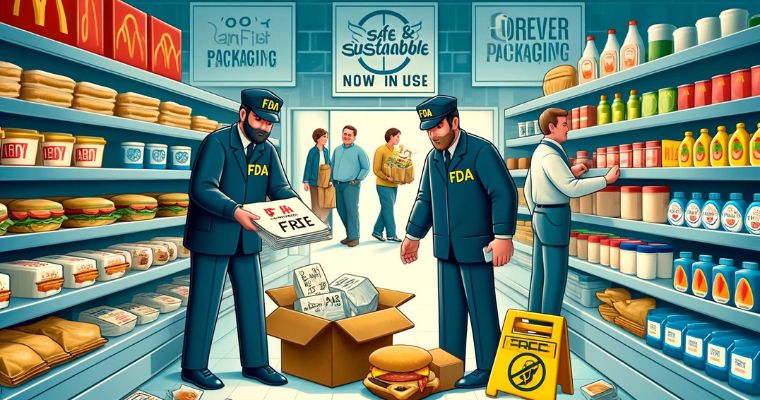
The U.S. Food and Drug Administration (FDA) recently declared that fast-food wrappers and packaging containing harmful “forever chemicals” are no longer available for sale in the United States. This development follows a collaborative initiative with American food producers to eliminate the use of PFAS—short for perfluoroalkyl and polyfluoroalkyl substances—in food contact materials. These chemicals, known for their inability to break down, pose significant health risks.
Since 2020, the FDA has worked with food industry leaders to gradually remove PFAS from food packaging materials like wrappers, boxes, and bags designed to resist grease, water, and other liquids. Leading fast-food chains, including McDonald’s, have proactively discontinued the use of PFAS-containing materials ahead of the scheduled cessation.
PFAS exposure is associated with various health concerns, including altered cholesterol levels, liver dysfunction, compromised immune responses, and an increased risk of certain cancers. Dr. Sheela Sathyanarayana, a pediatrics expert at the University of Washington School of Medicine and a researcher on PFAS in breast milk and other sources, lauds this move as a significant positive shift. She emphasizes, however, that PFAS sources are widespread in the environment.
One major PFAS exposure route is through drinking water. Dr. Sathyanarayana suggests that individuals consult the Environmental Protection Agency’s (EPA) PFAS maps to check their water supply and consider using filters to eliminate these chemicals. She also advises reducing consumption of meat and dairy products, avoiding certain indoor cleaning agents and water-resistant products, leaving shoes at the door to prevent indoor contamination, and washing hands thoroughly before handling food to minimize PFAS exposure.




